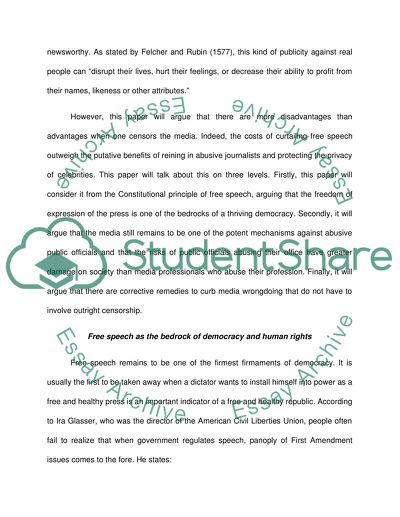Cite this document
(“Media Responsibility and the Privacy of Public Personalities Research Paper”, n.d.)
Media Responsibility and the Privacy of Public Personalities Research Paper. Retrieved from https://studentshare.org/english/1455031-topic-after-watching-the-video-license-to-blame
Media Responsibility and the Privacy of Public Personalities Research Paper. Retrieved from https://studentshare.org/english/1455031-topic-after-watching-the-video-license-to-blame
(Media Responsibility and the Privacy of Public Personalities Research Paper)
Media Responsibility and the Privacy of Public Personalities Research Paper. https://studentshare.org/english/1455031-topic-after-watching-the-video-license-to-blame.
Media Responsibility and the Privacy of Public Personalities Research Paper. https://studentshare.org/english/1455031-topic-after-watching-the-video-license-to-blame.
“Media Responsibility and the Privacy of Public Personalities Research Paper”, n.d. https://studentshare.org/english/1455031-topic-after-watching-the-video-license-to-blame.


